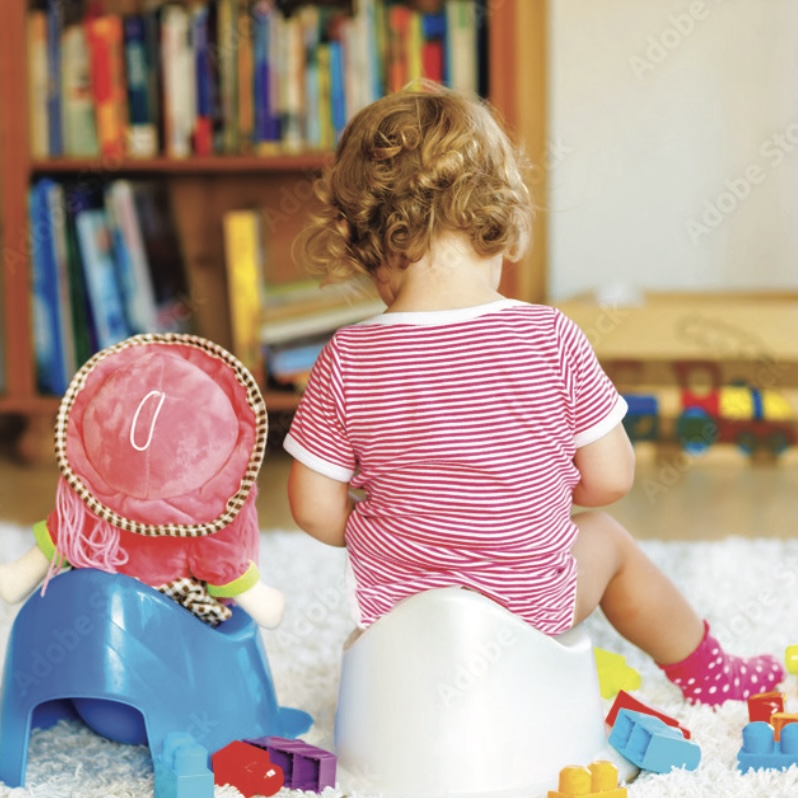
Learning to toilet train can be tricky for children for several reasons. For children with autism, this can be even harder. It’s a big change from wearing nappies. It requires mastering new skills and routines. Let’s explore why toilet training can be challenging for children.
Why Toilet Training Is Hard for Children
-
Physical Readiness:
- It requires children to control their bladder and bowel movements. This can be tough because they’re used to going whenever they need to in a diaper. It takes time for children to develop the muscles and coordination needed to hold it and use the toilet.
-
Sensory Sensitivity:
- Some children are sensitive to the feeling of sitting on a potty or toilet seat, the sound of flushing, or the sensation of pee or poop leaving their body. These sensations can be uncomfortable or overwhelming for them, making toilet training difficult.
-
Fear of the Unknown:
- Using the toilet is a new experience for children, and it can be scary or intimidating. They may worry about falling in, getting flushed away, or feeling embarrassed if they have an accident. This fear of the unknown can make them hesitant to use the toilet.
-
Change in Routine:
- Learning to toilet disrupts the familiar routine of wearing nappies and going whenever they need to. Children may feel resistant to this change and prefer the comfort and convenience of diapers. Adjusting to a new routine can be challenging for them.
-
Independence and Control:
- Toilet training requires children to take more responsibility for their bodily functions. This can be a big adjustment for them, as they’re used to caregivers taking care of these needs for them. They may struggle with the idea of being in charge of when and where they go to the bathroom.
-
Pressure and Expectations:
- Children may feel pressure to meet expectations or deadlines, especially if they see their peers or siblings using the toilet. This pressure can add stress and make toilet training more challenging for them.
-
Intellectual Ability:
- Some children with intellectual disability do not understand what is required to learn to toilet. These children need a specific program to support their toileting. It often centres around the concept of toilet timing.
Conclusion
Toilet training can be difficult for children as they navigate physical, sensory, emotional, and social factors. It’s a process that requires patience, understanding, and support from caregivers. By recognising the challenges children may face during toilet training, caregivers can provide the necessary encouragement and assistance to help children feel confident and successful in their toilet training journey. With time, patience, and support, most children eventually master toilet training and transition to using the toilet independently.
If your child has autism or an intellectual disability, we have a dedicated toilet training program called ‘1s and 2s’. It has helped hundreds of children learn to toilet train.
We’re here to support you
At OneOnOne Children’s Therapy, we believe that every child deserves the opportunity to grow and thrive.
Our clinics are not just a space for therapy – it’s a place where children can discover their strengths, overcome challenges, and reach their full potential.
By combining innovative therapy techniques with a stimulating and supportive environment, we’re proud to offer a holistic approach to paediatric therapy and early intervention that addresses the unique needs of each child we support.
Reach out for support
If you’re concerned about your child’s toileting or want to learn more about how our ‘1s and 2s’ program can help your child, OneOnOne Children’s Therapy is here to help.
Call us on (02) 80657837 or email. You can book a free 30 minute phone call with us to discuss how we can support your child’s unique journey.
Learn more about toileting here: When to start toilet training
